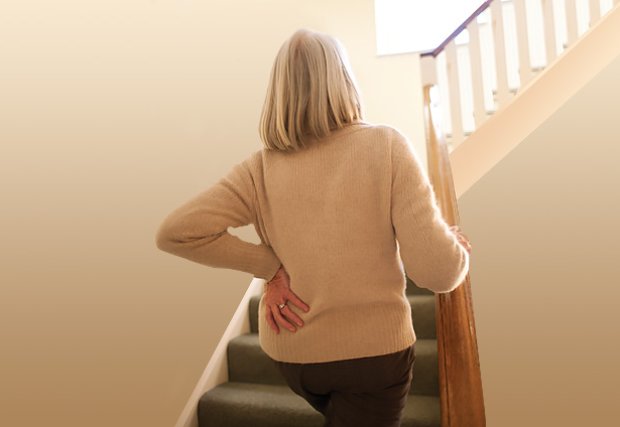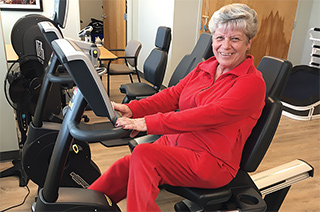Back, knees, hips, hands ... As we age, our bodies begin to protest some of the wear and tear of decades spent exercising, playing sports or performing repetitive motions. Sometimes pain is caused by a new injury or one that didn't heal properly, an autoimmune disease or nerve damage. In some cases, an over-the-counter or prescribed medicine might help; in other situations, surgery might be required. Each person’s pain situation is unique, and should be managed accordingly. Here, professionals share their insights.
Tom Hunt, MD, family medicine program director for the graduate medical education program at The Valley Health System, says that for people with arthritis, activities like stretching, exercise and weight management are very important. The Arthritis Foundation recommends acetaminophen (Tylenol®) as a first-line medication to treat arthritis.
Additionally, patients with a history of addiction or alcoholism (including family history) should inform their physician or dentist prior to a procedure, or when being prescribed pain medicine. “We may choose to use a different medication, or follow a patient more closely, knowing that some medications prescribed for post-operative care can be addicting,” says Dr. Hunt. “We want to treat pain appropriately yet also minimize complications such as relapse or dependency.”
James Horrocks, physical therapist and manager of outpatient therapy services for Spring Valley Hospital, suggests exercise,* which he says is a powerful activity to decrease or eliminate pain. “Stretching is also important as muscles that aren’t stretched become tight, restricting motion, which can cause pain. Tight muscles can also create joint compression, which can lead to early arthritis.” Applying heat and ice appropriately also has the ability to reduce inflammation, increase circulation and promote relaxation. Finally, lifestyle can make a positive difference. Engaging in worthwhile activities with others can generate wellbeing and reduce stress, which is associated with mild to severe medical conditions.
Saju Joseph, MD, FACS, program director of the graduate medical education surgery program for The Valley Health System, says that preparation can help reduce post-operative pain. “To reduce pain before surgery, three key activities are to stop smoking, exercise and eat well.”
After surgery, activity is the key to a faster recovery. Moving helps circulation return to the injured area and heals nerves. As for post- surgery medications, “narcotics are the last resort since they have significant side effects and often slow healing.” Anti-inflammatory medications are used to reduce the cause of pain, and can be supplemented with activities like meditation, massage, Reiki and even chewing gum.
*Before starting a new exercise program, consult a physician.
Read about drug-free ways to manage pain >
Ready for Her Dancing Shoes
After Maggie Latham, 61, had both ankles replaced due to a work-related accident and arthritis, her feet were in terrible condition. “I couldn't move my right foot at all,” she says. “But I knew I needed physical therapy and I didn't want to take pain pills.”
Happily, she found the Outpatient Therapy Center at Spring Valley Hospital. “I was meant to be here,” she says. Physical therapist James Horrocks taught her multiple exercises that she uses on both feet. “I’ll push my feet up, down, side to side, clockwise and counter-clockwise,” she explains. “Then I’ll move onto the weight machine, do stretches and work on my balance. I can walk again, and since I love dancing, I want to wear small heels, not my sneakers. Plus, when James stretches my foot with his hands, he has helped straighten up my toes a bit, too.”
Latham has some advice for others who are considering therapy. “Go for it, even if it hurts. It’s hard work, but stick with it. It will be worth it in the long run and much better than taking pain pills.”


